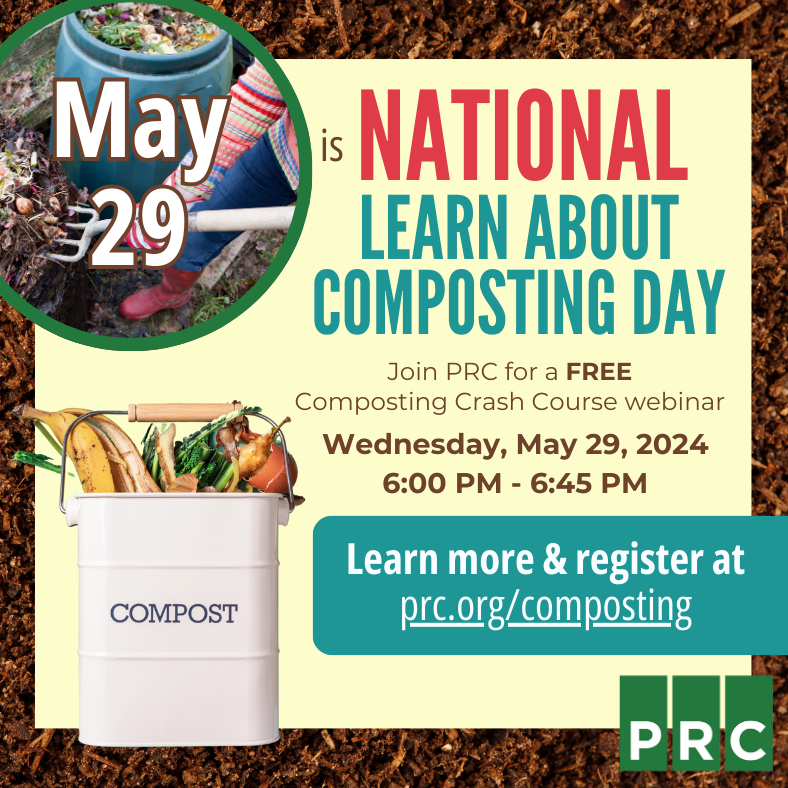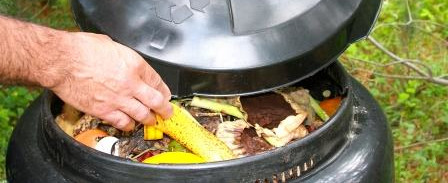Are you unsure of what to do with your kitchen, garden, and yard scraps? Would you like natural, homemade compost for your lawn and garden?

Expand your waste reduction efforts by signing up for a Backyard Composting class and turning your organic waste into a valuable resource for your garden. Attendees will learn the benefits and process of composting, plus everything you need to know about setting up and maintaining a compost bin to turn kitchen scraps, yard waste, and more into natural, home-made compost.
Compost bins purchased through virtual webinars are available for pickup from your choice of choice of either Pittsburgh (Allegheny County) or Media (Delaware County) after the webinar.
Composting Crash Course
register here
For more information on programs:
Email emilys@prc.org or call 412-488-7490 x 6 for the PRC WEST Office
Email butler@prc.org or call 610-353-1555 x 3 for the PRC EAST Office




